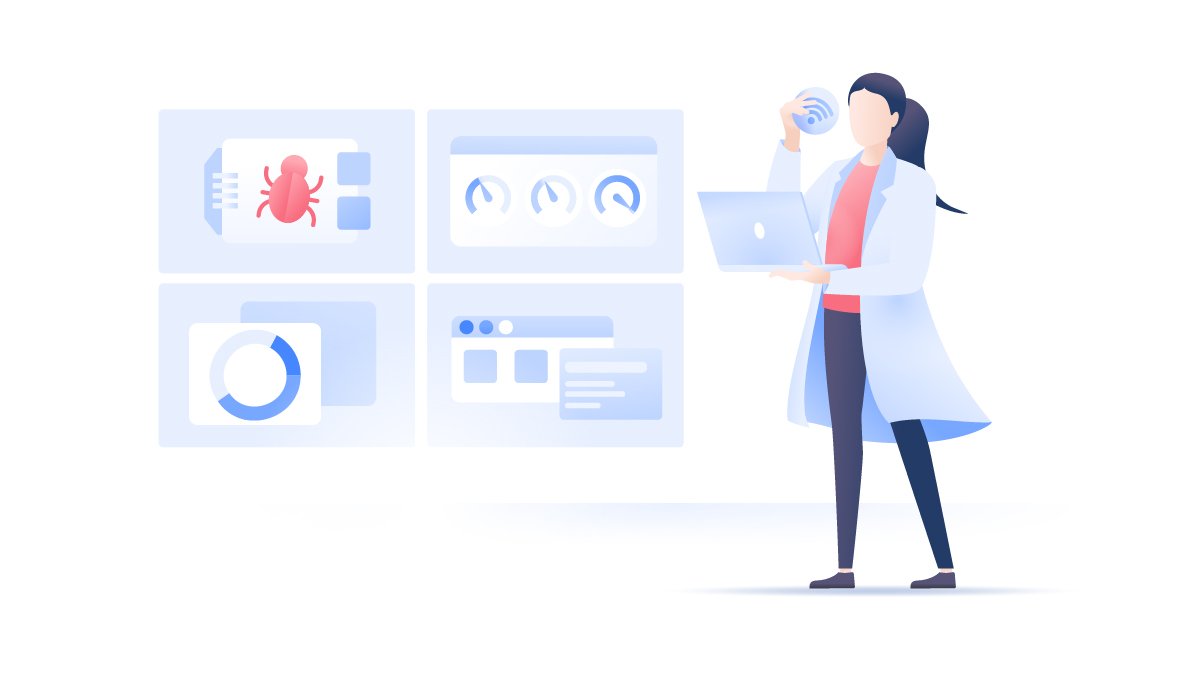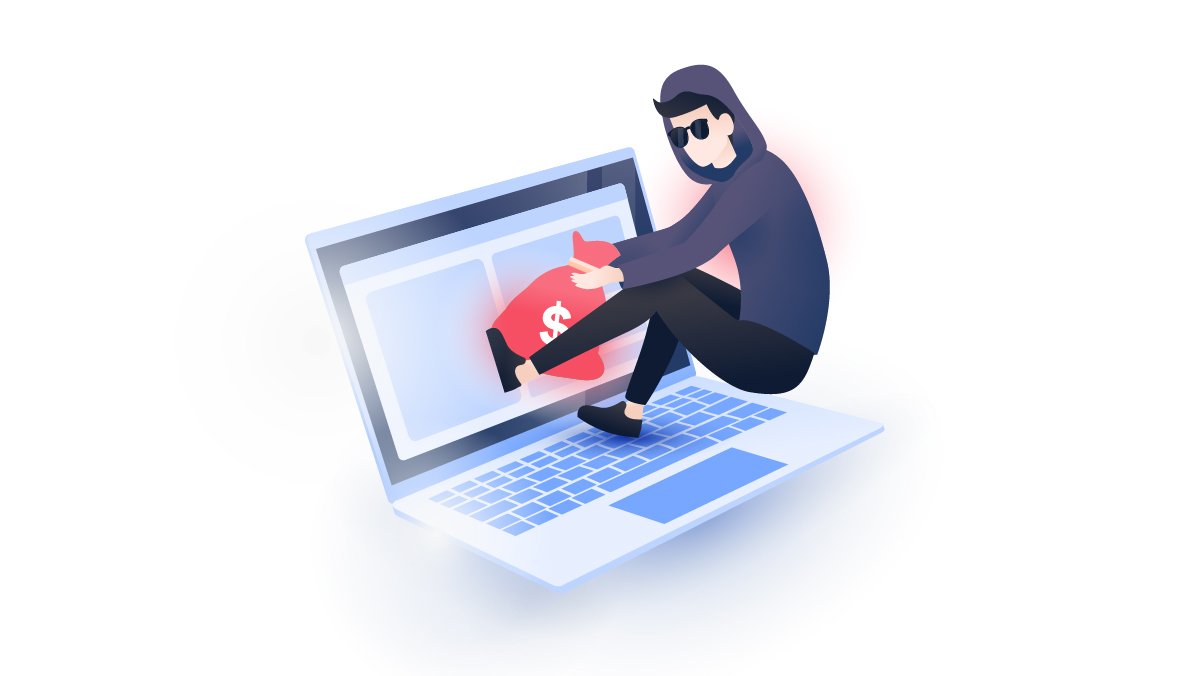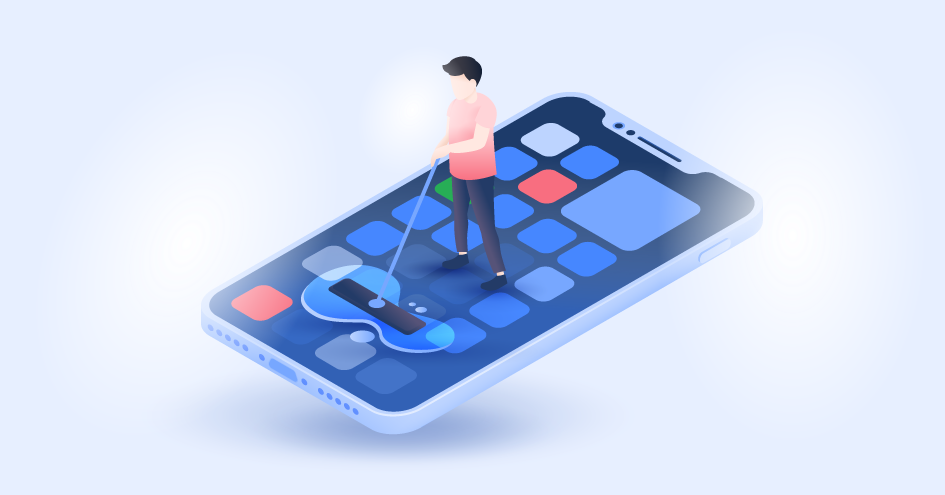What is a cache and is it slowing down your device?
Cache systems have been working behind the scenes to make your online experience faster and more convenient. But if you’ve never cleared any of your caches, could they eventually slow down your device? Maybe they already have. So what is cache? And will your device run faster if you delete cached data?
Malcolm Higgins
May 26, 2021 · 4 min read

What is a cache and how does it work?
A cache is a store of data on your device that can be used to speed up loading times. They’re usually built into the infrastructure of an app.
Browsing the internet is essentially a never-ending exchange of information. Whether you’re using a browser or any other app on your phone or laptop, every click is a request for specific pieces of data, and everything you see on your screen is an answer to one of those requests.
But displaying a website with all its images and code can take a lot of time. To speed up that process, web browsers save some of that information and use it the next time you visit that same website. This is called caching.
Cached data systems aren’t limited to web browsers, of course. Every device and its apps use cache memory to speed up data access. But they don’t use cached data in the same way. While disk cache is used to load information preemptively for device functionality, browsers and other apps save data from previous activity, so certain sites and page elements can be loaded faster.
The benefits of cache memory
How does caching improve user experience? Mainly, it’s speed. Because of their caches, browsers, apps, and operating systems are able to display information faster. But that's not the only benefit.
Storing data locally means that you save bandwidth as you don’t have to download the same things again. And, because data is already on your device, you can sometimes use apps or view information in offline mode.
Downsides of cache systems
Despite its original purpose, caching can also reduce your device’s performance capabilities. This can happen in a number of ways:
- Caching uses old data. Cached data may prevent a website or app from using its newer version. It can prevent images from loading and slow down the device in general.
- Your cache collects data without your knowledge or consent. The only reason a cache exists is to collect data. But since caching is a background process, many people aren’t aware of how much old data is being stored on their device.
- Malware can hide in your cache. Despite being labeled as temporary memory, it can take months before your cache is deleted. That makes it a perfect place for hackers to hide their malware.
- Cached data takes up storage space. Games, podcasts, videos, and social media apps store a lot of cached data on your device. That can add up to many gigabytes of precious storage.
Different types of cache memory
Have you ever had a computer shut down on you suddenly? And when you turned it back on, did some of the apps relaunch so you could continue your work? That’s the benefit of caching. And it’s everywhere.
Memory cache
Memory cache uses CPU memory to speed up the data access from the main memory. It’s called L1, L2, L3, etc. and while it’s much smaller than RAM memory, it’s also much faster.
Disk cache
Disk cache uses RAM memory to create a copy of whatever you’re working on. Usually, the entire folder is copied into the cache because the computer assumes that you will be needing some of that data. That’s why the first time you open a folder might take significantly more time than opening a file inside it.
Browser cache (web cache)
Web browsers use your hard drive to store different parts of the web pages you visit like images, JavaScript, and queries. If you go to your browser settings and select to delete your history, you should also see how much storage has been used for cached images.
App cache
An app cache works just like a web cache. It saves bits of data like code and files to the app’s memory so it can retrieve them faster the next time you need them.
How often do you need to delete your cache?
Since cache contents are considered temporary data and so fairly unimportant, you can delete them safely. The question is, when do you need to do it?
Clearing cache should be one of the first things you do if you are experiencing errors or if apps started to misbehave. But under normal circumstances, you should delete the cache at least once a month.
We have many guides that walk you through the process on different platforms and apps:
Keep in mind that most guides on how to delete cookies and temporary files will also explain how to clear cache in the same process.
Want to read more like this?
Get the latest news and tips from NordVPN.



